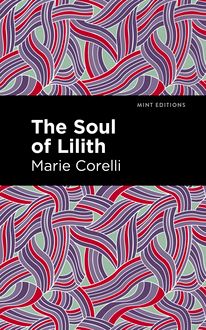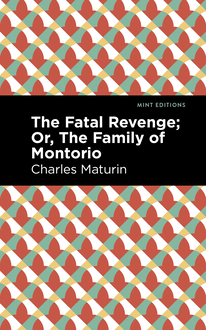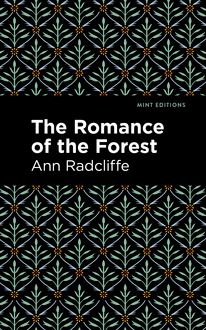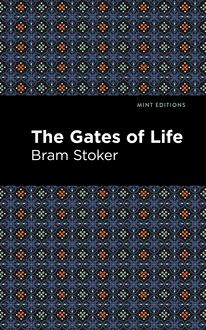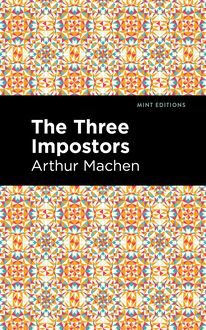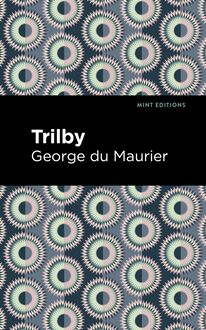-
 Univers
Univers
-
 Ebooks
Ebooks
-
 Livres audio
Livres audio
-
 Presse
Presse
-
 Podcasts
Podcasts
-
 BD
BD
-
 Documents
Documents
-
- Cours
- Révisions
- Ressources pédagogiques
- Sciences de l’éducation
- Manuels scolaires
- Langues
- Travaux de classe
- Annales de BEP
- Etudes supérieures
- Maternelle et primaire
- Fiches de lecture
- Orientation scolaire
- Méthodologie
- Corrigés de devoir
- Annales d’examens et concours
- Annales du bac
- Annales du brevet
- Rapports de stage
La lecture à portée de main
Vous pourrez modifier la taille du texte de cet ouvrage
Découvre YouScribe en t'inscrivant gratuitement
Je m'inscrisDécouvre YouScribe en t'inscrivant gratuitement
Je m'inscrisEn savoir plus
Vous pourrez modifier la taille du texte de cet ouvrage
En savoir plus

Description
What begins as an ordinary event quickly shifts into the bizarre after the narrator, a wealthy bachelor, meets their friend, Lanvivain, at an old mansion. Thinking about purchasing the property, the narrator and Lanvivain explore the mansion at Kerfol, attracted to the vast and ordinate property. Lanvivain enthusiastically urges the bachelor to buy the property, declaring that it matches his personality exactly. The narrator, however, is unconvinced, as he is concerned when they notice how vacant the house is. The property is incredibly still—no-one is around, except a pack of dogs that are deadly silent and calm, almost as if they were just a figment of the imagination. Intrigued, the two friends decide to look into the history of the house to find the previous owners. First occupied years before, the house used to be owned by a couple. The husband, Yves, was often away on business, so to make it up to his wife, Anne, he would buy her dogs. Anne cared for her dogs dearly. She would treat them with the best care possible, and loved them like they were her own children. The sentiment that was appreciated and reciprocated by the dogs. However, as the young couple’s bond was not as strong. As Yves and Anne’s relationship started to slip into turmoil, Yves grew to be cruel, committing acts that would haunt the mansion forever. With retroactive narration and compelling characters, Kerfol by Edith Wharton follows two generations of characters in association with the same property. With skillfully crafted prose, Wharton delivers a narrative that is suspenseful and spooky, while simultaneously appealing to a sense of sentiment and mystery. Kerfol defies genre and demands attention with twists and odd phenomena. Though first published in 1916, just over one-hundred years ago, Edith Wharton’s Kerfol appeals to contemporary audiences with its unique plot, vivid setting, and timeless themes of loyalty and revenge. This edition of Kerfol by Edith Wharton is presented with a new, eye-catching cover design and is printed in a font that is both modern and readable. With these accommodations, this heart-breaking gothic horror is a tempting and alluring experience for contemporary readers.
Sujets
Informations
| Publié par | Mint Editions |
| Date de parution | 21 mai 2021 |
| Nombre de lectures | 0 |
| EAN13 | 9781513275635 |
| Langue | English |
| Poids de l'ouvrage | 2 Mo |
Informations légales : prix de location à la page 0,0250€. Cette information est donnée uniquement à titre indicatif conformément à la législation en vigueur.
Extrait
Kerfol
Edith Wharton
Kerfol was first published in 1916.
This edition published by Mint Editions 2021.
ISBN 9781513270630 | E-ISBN 9781513275635
Published by Mint Editions ®
minteditionbooks.com
Publishing Director: Jennifer Newens
Design & Production: Rachel Lopez Metzger
Typesetting: Westchester Publishing Services
Contents I II III
I
“ Y ou ought to buy it,” said my host; “its Just the place for a solitary-minded devil like you. And it would be rather worth while to own the most romantic house in Brittany. The present people are dead broke, and it’s going for a song—you ought to buy it.”
It was not with the least idea of living up to the character my friend Lanrivain ascribed to me (as a matter of fact, under my unsociable exterior I have always had secret yearnings for domesticity) that I took his hint one autumn afternoon and went to Kerfol. My friend was motoring over to Quimper on business: he dropped me on the way, at a cross-road on a heath, and said: “First turn to the right and second to the left. Then straight ahead till you see an avenue. If you meet any peasants, don’t ask your way. They don’t understand French, and they would pretend they did and mix you up. I’ll be back for you here by sunset—and don’t forget the tombs in the chapel.”
I followed Lanrivain’s directions with the hesitation occasioned by the usual difficulty of remembering whether he had said the first turn to the right and second to the left, or the contrary. If I had met a peasant I should certainly have asked, and probably been sent astray; but I had the desert landscape to myself, and so stumbled on the right turn and walked across the heath till I came to an avenue. It was so unlike any other avenue I have ever seen that I instantly knew it must be the avenue. The grey-trunked trees sprang up straight to a great height and then interwove their pale-grey branches in a long tunnel through which the autumn light fell faintly. I know most trees by name, but I haven’t to this day been able to decide what those trees were. They had the tall curve of elms, the tenuity of poplars, the ashen colour of olives under a rainy sky; and they stretched ahead of me for half a mile or more without a break in their arch. If ever I saw an avenue that unmistakably led to something, it was the avenue at Kerfol. My heart beat a little as I began to walk down it.
Presently the trees ended and I came to a fortified gate in a long wall. Between me and the wall was an open space of grass, with other grey avenues radiating from it. Behind the wall were tall slate roofs mossed with silver, a chapel belfry, the top of a keep. A moat filled with wild shrubs and brambles surrounded the place; the drawbridge had been replaced by a stone arch, and the portcullis by an iron gate. I stood for a long time on the hither side of the moat, gazing about me, and letting the influence of the place sink in. I said to myself: “If I wait long enough, the guardian will turn up and show me the tombs—” and I rather hoped he wouldn’t turn up too soon.
I sat down on a stone and lit a cigarette. As soon as I had done it, it struck me as a puerile and portentous thing to do, with that great blind house looking down at me, and all the empty avenues converging on me. It may have been the depth of the silence that made me so conscious of my gesture. The squeak of my match sounded as loud as the scraping of a brake, and I almost fancied I heard it fall when I tossed it onto the grass. But there was more than that: a sense of irrelevance, of littleness, of futile bravado, in sitting there puffing my cigarette-smoke into the face of such a past.
I knew nothing of the history of Kerfol—I was new to Brittany, and Lanrivain had never mentioned the name to me till the day before—but one couldn’t as much as glance at that pile without feeling in it a long accumulation of history. What kind of history I was not prepared to guess: perhaps only that sheer weight of many associated lives and deaths which gives a majesty to all old houses. But the aspect of Kerfol suggested something more—a perspective of stern and cruel memories stretching away, like its own grey avenues, into a blur of darkness.
Certainly no house had ever more completely and finally broken with the present. As it stood there, lifting its proud roofs and gables to the sky, it might have been its own funeral monument. “Tombs in the chapel? The whole place is a tomb!” I reflected. I hoped more and more that the guardian would not come. The details of the place, however striking, would seem trivial compared with its collective impressiveness; and I wanted only to sit there and be penetrated by the weight of its silence.
“It’s the very place for you!” Lanrivain had said; and I was overcome by the almost blasphemous frivolity of suggesting to any living being that Kerfol was the place for him. “Is it possible that any one could not See—?” I wondered. I did not finish the thought: what I meant was undefinable. I stood up and wandered toward the gate. I was beginning to want to know more; not to see more—I was by now so sure it was not a question of seeing—but to feel more: feel all the place had to communicate. “But to get in one will have to rout out the keeper,” I thought reluctantly, and hesitated. Finally I crossed the bridge and tried the iron gate.
-
 Univers
Univers
-
 Ebooks
Ebooks
-
 Livres audio
Livres audio
-
 Presse
Presse
-
 Podcasts
Podcasts
-
 BD
BD
-
 Documents
Documents
-
Jeunesse
-
Littérature
-
Ressources professionnelles
-
Santé et bien-être
-
Savoirs
-
Education
-
Loisirs et hobbies
-
Art, musique et cinéma
-
Actualité et débat de société
-
Jeunesse
-
Littérature
-
Ressources professionnelles
-
Santé et bien-être
-
Savoirs
-
Education
-
Loisirs et hobbies
-
Art, musique et cinéma
-
Actualité et débat de société
-
Actualités
-
Lifestyle
-
Presse jeunesse
-
Presse professionnelle
-
Pratique
-
Presse sportive
-
Presse internationale
-
Culture & Médias
-
Action et Aventures
-
Science-fiction et Fantasy
-
Société
-
Jeunesse
-
Littérature
-
Ressources professionnelles
-
Santé et bien-être
-
Savoirs
-
Education
-
Loisirs et hobbies
-
Art, musique et cinéma
-
Actualité et débat de société
- Cours
- Révisions
- Ressources pédagogiques
- Sciences de l’éducation
- Manuels scolaires
- Langues
- Travaux de classe
- Annales de BEP
- Etudes supérieures
- Maternelle et primaire
- Fiches de lecture
- Orientation scolaire
- Méthodologie
- Corrigés de devoir
- Annales d’examens et concours
- Annales du bac
- Annales du brevet
- Rapports de stage



